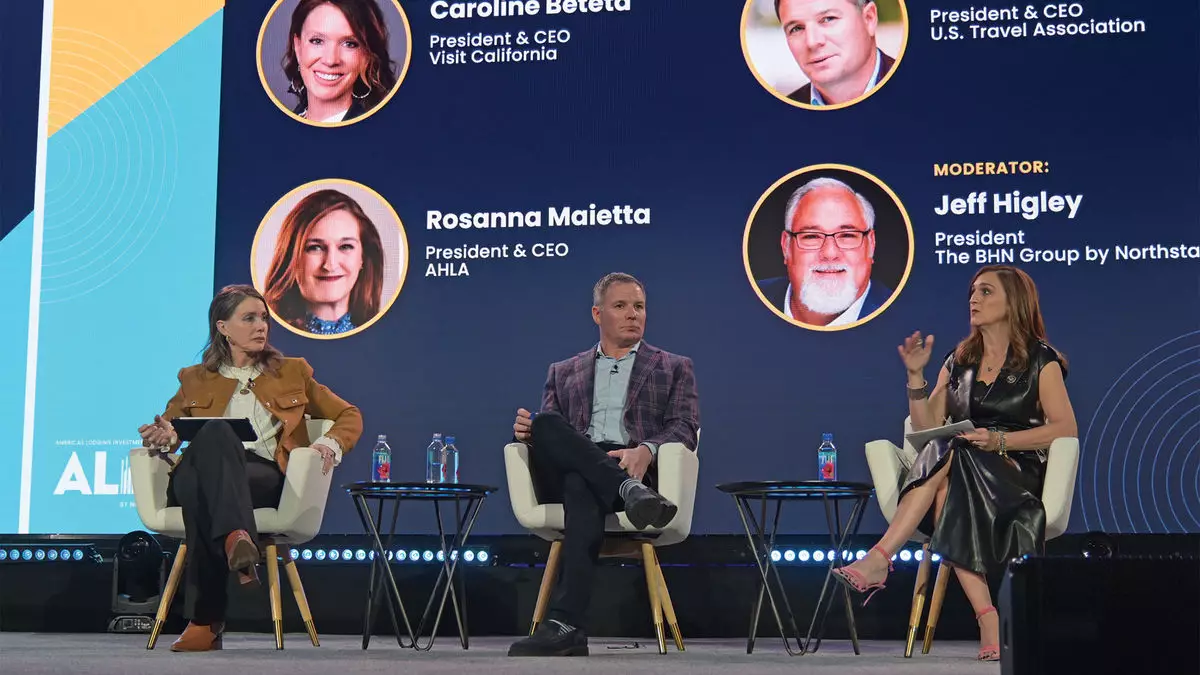The hospitality sector is currently grappling with a multitude of challenges, particularly those stemming from the evolving landscape of immigration policies in the United States. At the recent Americas Lodging Investment Summit in Los Angeles, leading hotel executives articulated their concerns regarding the implications of stricter border measures and heightened immigration vetting under the Trump administration. This article delves into the insights shared by industry leaders and analyzes their calls for a more balanced and pragmatic approach to immigration reform that prioritizes the needs of the hospitality workforce.
A recurring theme during the summit was the labor shortage facing the hospitality industry, a challenge that has persisted for years. Hilton CEO Chris Nassetta emphasized that workforce issues remain a critical concern, asserting that “one of the most important issues in our industry for time and eternity has been workforce.” This sentiment reflects a broader understanding within the industry that the lack of access to qualified workers significantly hampers growth potential. As debates surrounding immigration become polarized, the hospitality sector finds itself in a precarious position, struggling to meet staffing needs while navigating complex legal frameworks.
A Need for Targeted Immigration Solutions
Craig Smith, CEO of Aimbridge Hospitality, proposed a thoughtful approach to the immigration discourse, advocating for a focus on legal immigration rather than merely reinforcing border security. By calling upon the administration to engage in discussions about the necessity of skilled labor, Smith touched upon an essential aspect of the current immigration debate: the disconnect between policy and industry needs. Many positions within the hospitality sector require specialized skills, and without mechanisms to facilitate entry for qualified workers, establishments face operational challenges.
Rosanna Maietta, CEO of the American Hotel & Lodging Association, echoed Smith’s call for practical solutions amid the complex political landscape. Maietta elaborated on the importance of improving seasonal worker programs and the H-2B visa process, noting that the existing lottery system is often unpredictable and insufficient for businesses needing a reliable workforce. The emphasis on enhancing these programs illustrates a collective industry desire to seek collaborative solutions that benefit both the workforce and the economic landscape.
In addition to workforce concerns, the hospitality industry is acutely aware of how immigration policies can impact international travel. Marriott International CEO Anthony Capuano highlighted the potential repercussions of “enhanced vetting of incoming travelers,” indicating that such measures could reverse the progress made towards rejuvenating inbound tourism following pandemic-related border restrictions. The emphasis on minimizing friction in cross-border travel is crucial for an industry that relies heavily on international visitors for revenue.
Geoff Freeman, CEO of the U.S. Travel Association, raised important points regarding the mixed signals being communicated to potential international guests. By expressing an ambivalence toward both illegal and legal visitors, the U.S. is inadvertently discouraging traveler interest. When coupled with prolonged visa-processing times—reportedly exceeding 400 days in some countries—this creates an environment that is not conducive to attracting tourism, further exacerbating challenges for the hospitality sector.
Despite the significant hurdles posed by immigration policy changes and labor shortages, there is a shared optimism within the hospitality industry regarding its long-term viability. Chris Nassetta’s assertion that “business likes certainty” captures the essence of what stakeholders desire. While immediate challenges may seem daunting, a concerted effort to advocate for targeted immigration reform, improve visa processes, and enhance seasonal worker access could help pave the way for a more resilient future for the industry. The path forward requires an acknowledgment of the complex interplay between immigration policy and the workforce, prompting dialogue that ultimately prioritizes the sustainability of one of America’s vital economic sectors.


Leave a Reply